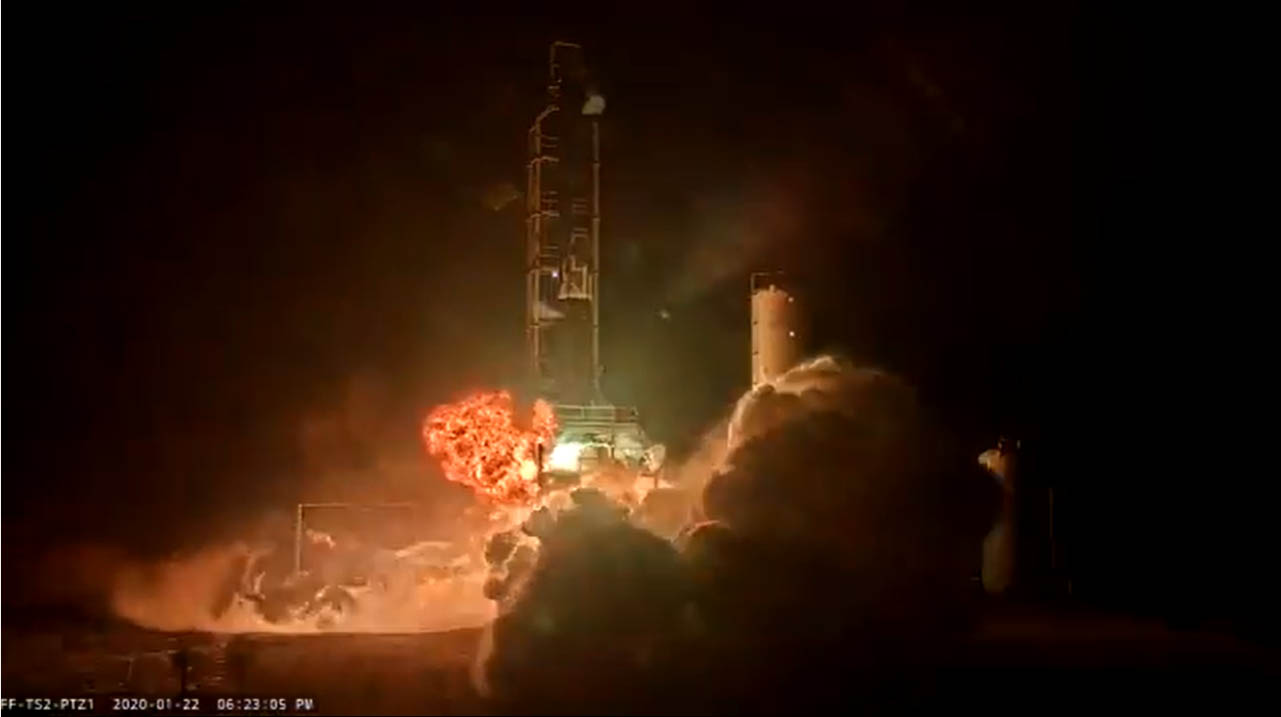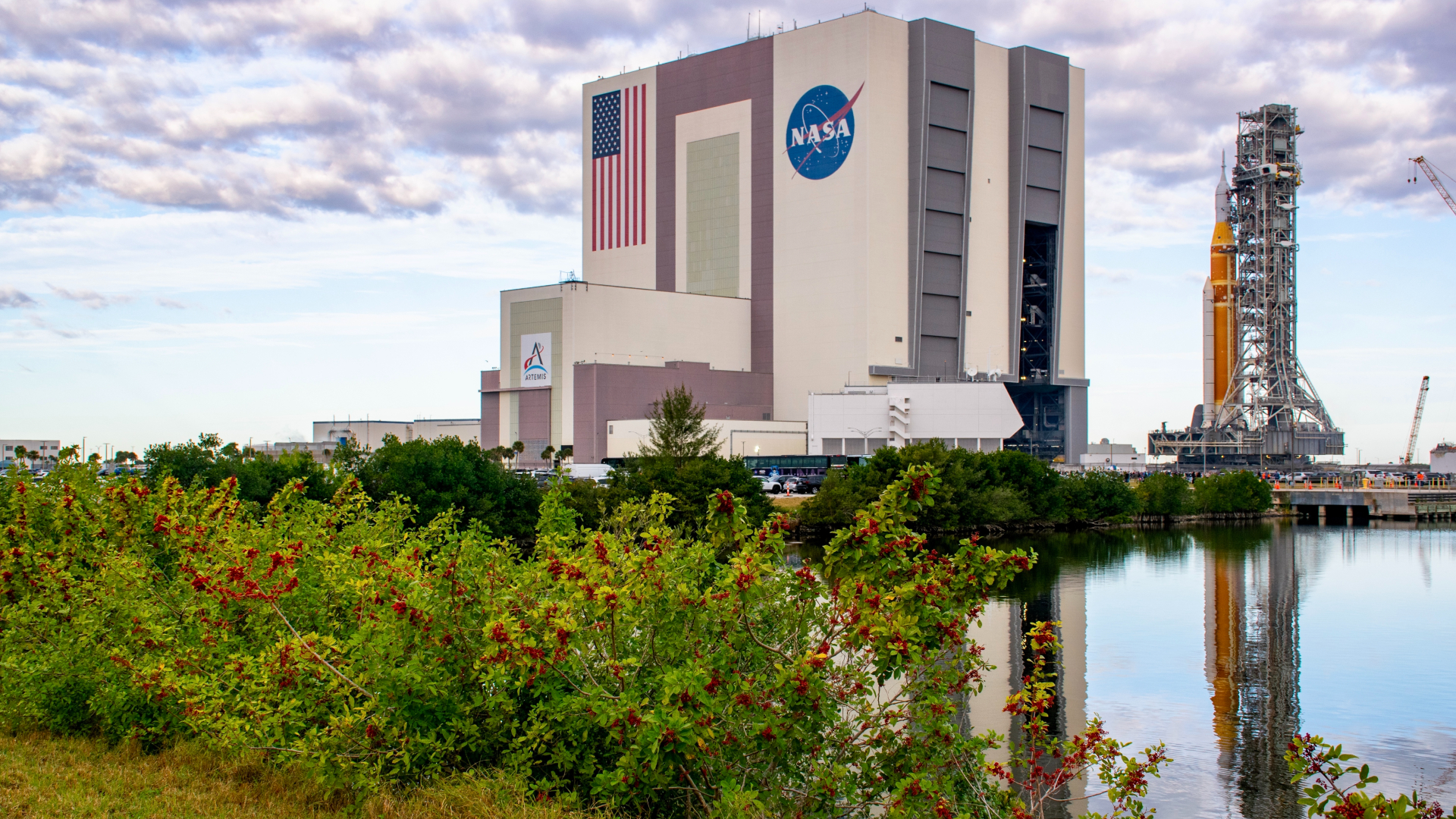Firefly Aerospace rocket engine test ends in fire (video)
The small fire broke out during a Reaver engine test.
Firefly Aerospace is opening up about a fire that broke out during a recent rocket engine test, releasing video of the event as the company investigates the failure's cause.
The fire occurred Wednesday (Jan. 22) during a "hot-fire" test of Firefly's Alpha rocket, a booster designed for small satellite launches. The exercise at Firefly's proving grounds in Briggs, Texas was designed to test the Alpha's four first-stage Reaver engines with a short 5-second firing.
Firefly Aerospace's video of the hot-fire, which it released on Twitter Thursday (Jan. 23), shows a fire erupting from the left of the view as the engine test began.
Related: The space missions to watch in 2020
"At 6:23 pm local time, the stage's engines were fired, and a fire broke out in the engine bay at the base of the rocket's stage," Firefly representatives wrote in a statement. "The 5-second test was immediately aborted and the test facility’s fire suppression system extinguished the fire."
No one was injured by the fire and Firefly employees and the public were never in danger, the company said. The Alpha rocket stage and the test stand also remain in intact, they added.
"Firefly is coordinating closely with local authorities and emergency response personnel as it investigates the anomaly and refines its contingency procedures," Firefly representatives said.
Breaking space news, the latest updates on rocket launches, skywatching events and more!
Inspecting Alpha and test stand after last night's anomaly. pic.twitter.com/KwDOrQRjduJanuary 24, 2020
Firefly is developing the Alpha rocket powered by Reaver engines to launch payloads of up to 2,220 lbs. (1,000 kilograms) to low Earth orbit. The 95-foot-tall (29 meters) Alpha will launch from a Firefly pad at Vandenberg Air Force Base in California.
The company is also in the early design stages for a larger rocket, called Beta, that would be capable of delivering up to 8,800 lbs (4,400 kg) to low Earth orbit.
Before last week's engine test fire, Firefly was aiming for a debut launch of the Alpha booster by April, with a second flight to follow in June. Those launches will likely have to wait until Firefly completes its investigation into the Jan. 22 fire and wraps up its Reaver testing program.
"The cause of the anomaly is under investigation. Firefly engineers are reviewing test data from the stage to identify potential causes for the test failure, and Firefly will share results of that investigation once it is complete," the company has said.
- The History of Rockets
- Satellite Quiz: How Well Do You Know What's Orbiting Earth?
- These Are the Private Lunar Landers Taking NASA Science to the Moon
Email Tariq Malik at tmalik@space.com or follow him @tariqjmalik. Follow us @Spacedotcom, Facebook and Instagram.


Tariq is the award-winning Editor-in-Chief of Space.com and joined the team in 2001. He covers human spaceflight, as well as skywatching and entertainment. He became Space.com's Editor-in-Chief in 2019. Before joining Space.com, Tariq was a staff reporter for The Los Angeles Times covering education and city beats in La Habra, Fullerton and Huntington Beach. He's a recipient of the 2022 Harry Kolcum Award for excellence in space reporting and the 2025 Space Pioneer Award from the National Space Society. He is an Eagle Scout and Space Camp alum with journalism degrees from the USC and NYU. You can find Tariq at Space.com and as the co-host to the This Week In Space podcast on the TWiT network. To see his latest project, you can follow Tariq on Twitter @tariqjmalik.

